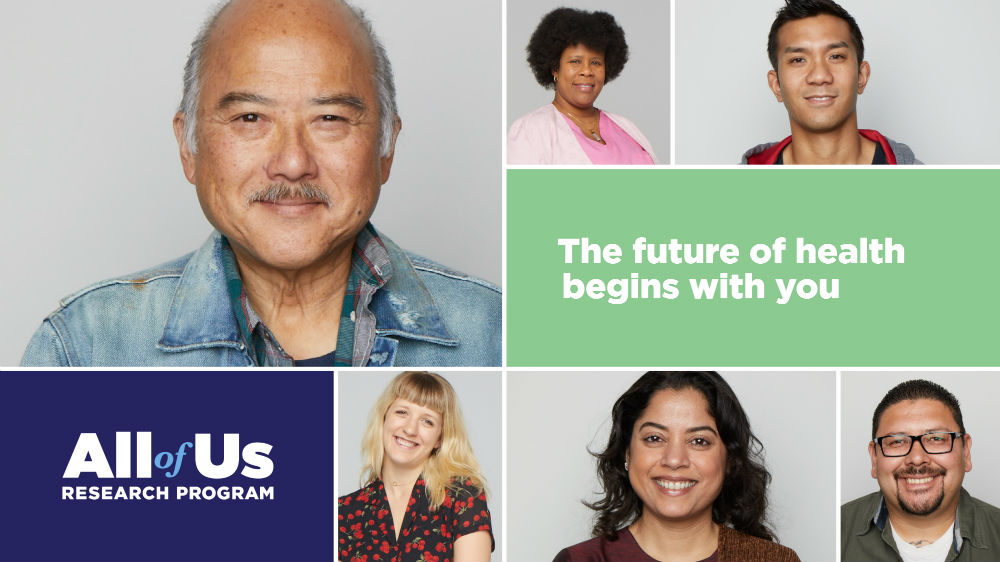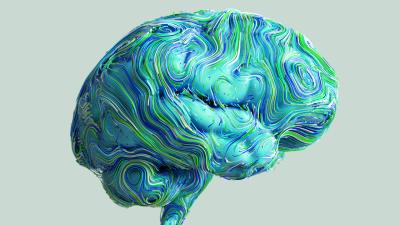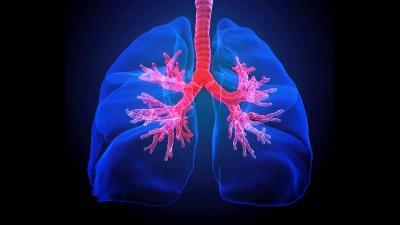National Institutes of Health’s “All of Us” Research Project Launches, Promises to Fundamentally Advance Health Research

Ever wonder how a person’s individual lifestyle, environment, and biological make-up can affect their health? The National Institutes of Health (NIH) is on a mission to find out.
Last week the NIH opened nationwide enrollment for their ambitious All of Us Research Program. The All of Us Research Program aims to engage one million participants across the United States to reshape the way people conduct research. This large-scale, longitudinal study will give researchers better insights into the biological, environmental, and behavioral influences that affect diseases. All of Us differs from other research studies in that it does not focus on a single disease or population. This research program will cover a variety of health conditions and will function as a national research resource for thousands of studies.
All of Us is a key component of the federal Precision Medicine Initiative (PMI). Precision medicine is an innovative method that takes into account individual differences in genetics, lifestyles, and environments to develop personalized care. The PMI intends to replace the “one-size-fits-all” approach to healthcare by bringing together researchers, health care providers, and patients to work together.
“The All of Us Research Program is an opportunity for individuals from all walks of life to be represented in research and pioneer the next era of medicine. The time is now to transform how we conduct research—with participants as partners—to shed new light on how to stay healthy and manage disease in more personalized ways. This is what we can accomplish through All of Us.”
—Francis S. Collins, M.D., Ph.D., director, National Institutes of Health
Many research studies lack depth and diversity, which restricts the generalizability of the results. All of Us aims to engage participants from “all walks of life”—it welcomes healthy and sick individuals of all backgrounds and regions of the country. By partnering with one million or more diverse volunteers across the United States, the All of Us Research Program will enable research to more accurately prevent and treat a range of health conditions, both rare and common. A research study this large will have the statistical power to detect associations between environmental and/or biological exposures and a wide variety of health outcomes. Anyone over the age of 18 who is living in the United States is eligible to sign up. Children will likely be able to join in the next few years.
Participants will be asked to give consent, agree to share their health records, and complete health surveys. Participants may also be asked for physical measurements and blood and urine samples. The samples will be collected at participating health care centers located throughout the country. Over the next ten years or so volunteers may be invited to share more data through health surveys, fitness trackers, or other research studies. Throughout the program, All of Us will share data and information with individuals. Participants can receive certain study results to help them know more about themselves. They may even get the chance to have their genome sequenced!
The All of Us Research Program is a human-relevant research study that is designed to improve human health. This program has the capability to alter research and healthcare in profound ways. Using human-focused methods, like this epidemiological study, paired with technological advances in research, is a step towards advancing human health through innovative research, while saving animal lives. All of Us offers numerous scientific opportunities. It has the potential to measure one’s risk for diseases based on genetic and environmental exposures, to identify why individuals respond differently to drugs, to develop new disease classifications and relationships, and to lead to advances in precision medicine. This type of scientific study could shape the way people conduct research far in the future—and that’s good for all of us.







